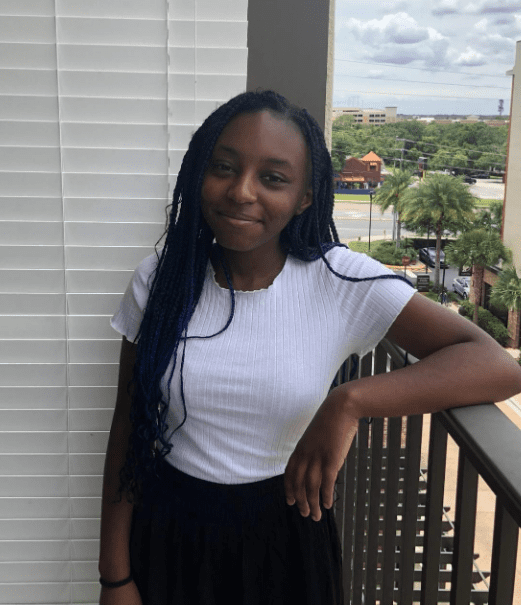This Generation Must Turn the Tide: Youth Voices in Preventing FGM/C
Posted: June 27. 2024
by Fadima Tall
The United Nations Sustainable Development Goal 5 aims to achieve worldwide gender equality, which specifically includes the elimination of FGM/C by 2030. With nearly 4.4 million girls at risk of FGM/C this year alone, it is highly unlikely this goal will be reached as current estimates suggest this number will actually rise to 4.6 million by 2030. FGM/C affects young girls globally, and some of the strongest advocates for its elimination are young survivors and allies around the world.
As a young girl growing up in Ethiopia, I was aware of FGM/C from an early age but was oblivious to its prevalence worldwide. It was during my studies in international relations and human rights in college that I began to understand the true scope of this issue and its impact on girls like me, not only in Africa but everywhere. This is why I decided to join The U.S. End FGM/C Network this year. In Ethiopia, 74% of women between ages 15 and 49 live with FGM/C, and in Mali, my native country, over 90% of women in that age group are survivors. As a young African woman, I felt a responsibility to contribute to the movement to end FGM/C in any way I could, and through my work at The Network, I discovered the crucial role youth play in anti-FGM/C advocacy.
FGM/C is perpetuated by outdated, patriarchal beliefs that subjugate women and justify their oppression. Protecting girls from this practice isn’t simply about the act itself, but also about challenging the ideology behind it. Young people around the world must lead this change because they are at the forefront of shifting the dominant culture of misogyny. Youth activists worldwide have taken charge in their communities, educating those around them and rejecting archaic beliefs.
In Tanzania, a young girl named Bhoke became an advocate against FGM/C in her community when she joined the Chaguo Langu Haki Yangu (My Choice My Rights) Program, funded by the UNFPA and the Embassy of Finland. Through this organization, Bhoke organized a campaign at her school to educate and empower her peers. In my home country of Mali, a youth activist named Coulibaly, who works with Plan International to prevent FGM/C, has faced resistance from parents. He expressed his frustrations in an article saying, “You were born yesterday, and you are the one who wants to talk to us about female genital mutilation? This is what parents say when we try to talk to them about it.” Despite this, Plan International has been successful in implementing projects in 180 villages, 92 of which are now FGM/C-free. Young people like Coulibaly bring about change in their communities by educating their elders about the harms of FGM/C.
Youth activism is crucial to almost every movement for social justice, and anti-FGM/C advocacy is no different. I am inspired every day by young advocates like Bhoke and Coulibaly to continue working towards a world where girls no longer have to endure this harmful practice and can exercise their agency as young women. Change cannot happen if new generations fall into the same ideological traps as their predecessors. By dismantling the belief systems that allow practices like FGM/C to persist, the youth are building a better world for themselves and for the generations that will follow.

Fadima Tall, recently graduated from Rollins College in Winter Park, Florida, with a degree in Political Science. Although originally born in New York, Fadima’s roots trace back to Cameroon and Mali, and she was raised in Ethiopia. Throughout her academic journey, Fadima has undertaken significant roles, serving as both an administrative assistant and social media manager for Student Affairs. Additionally, she served as a research assistant in a qualitative research project within the field of anthropology.
Fadima’s dedication to gender equality and human rights is evident in her pursuits, a commitment she intends to deepen in graduate school. Her hands-on experience includes a fellowship at Equality Florida, where she engaged in grassroots organizing, and an internship at the Coalition on Human Needs in Washington D.C. These experiences have equipped her with valuable insights into political advocacy for marginalized groups, ultimately steering her towards her current role on the team at the Network.
